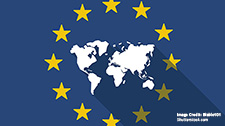Caucasus & Eastern Europe

The countries of the European Union’s Eastern Partnership are key areas of European security. The three states of the South Caucasus – Armenia, Azerbaijan and Georgia – and three countries located between the EU and Russia – Belarus, Moldova and Ukraine – have been independent since 1991, and display a wide variety of economic and political systems as well as foreign policy choices. The region lacks credible security arrangements, and is the subject of a growing geopolitical rivalry between the West and Russia. Four of the states – Azerbaijan, Georgia, Moldova and Ukraine, have unresolved territorial disputes on their territory, which form some of the leading challenges to European security.
ISDP’s activities in the Caucasus and Eastern Europe focus on research and analysis of the political development and regional security in the region, in particular unresolved conflicts, relations with the EU and U.S., as well as Russian foreign policy in the region. Work on the Caucasus region is conducted within the framework of the Joint Center with the Central Asia-Caucasus Institute in Washington, D.C., including the publication of the biweekly Central Asia-Caucasus Analyst, a leading sources of analysis on regional developments.
Related News
Related Publications
-
Visegrad Four and India: Searching for collaboration agenda amid global geopolitical upheaval
India’s strategic vision for Europe has traditionally focused on the continent’s heavyweights, France, Germany, and the United Kingdom. These states are long-standing partners in trade, defense, and multilateral forums, often […]
-
Strategic Duality: India and China in the EU’s Connectivity Agenda
The European Union (EU) frames its Global Gateway Strategy (GGS) as a rules-based initiative to enhance global connectivity, pledging around EUR 300 billion through 2027 to develop “smart, clean, and […]
-
Safeguarding the Indo-Pacific Region: Insights from Australia on Maritime Security
Contextual Background In an era marked by rapid geopolitical transformation and unprecedented technological advances, maritime security in the Indo-Pacific has become a critical imperative for both national and regional stability. […]
-
Armenia and the Belt and Road Initiative: Perspectives from Europe, the Caucasus, and Central Asia
This co-edited book analyses the opportunities and challenges enabled for Armenia by China’s Belt and Road Initiative (BRI) in the framework of economic cooperation, policy diversification, social inclusion, and regional […]
-
The EU’s Response to Pahalgam: A Missed Opportunity
The recent terrorist attack in Pahalgam was not just another act of violence—it was a chilling reminder of the brutal threats that still plague the Indian sub-continent. Yet, while many […]



